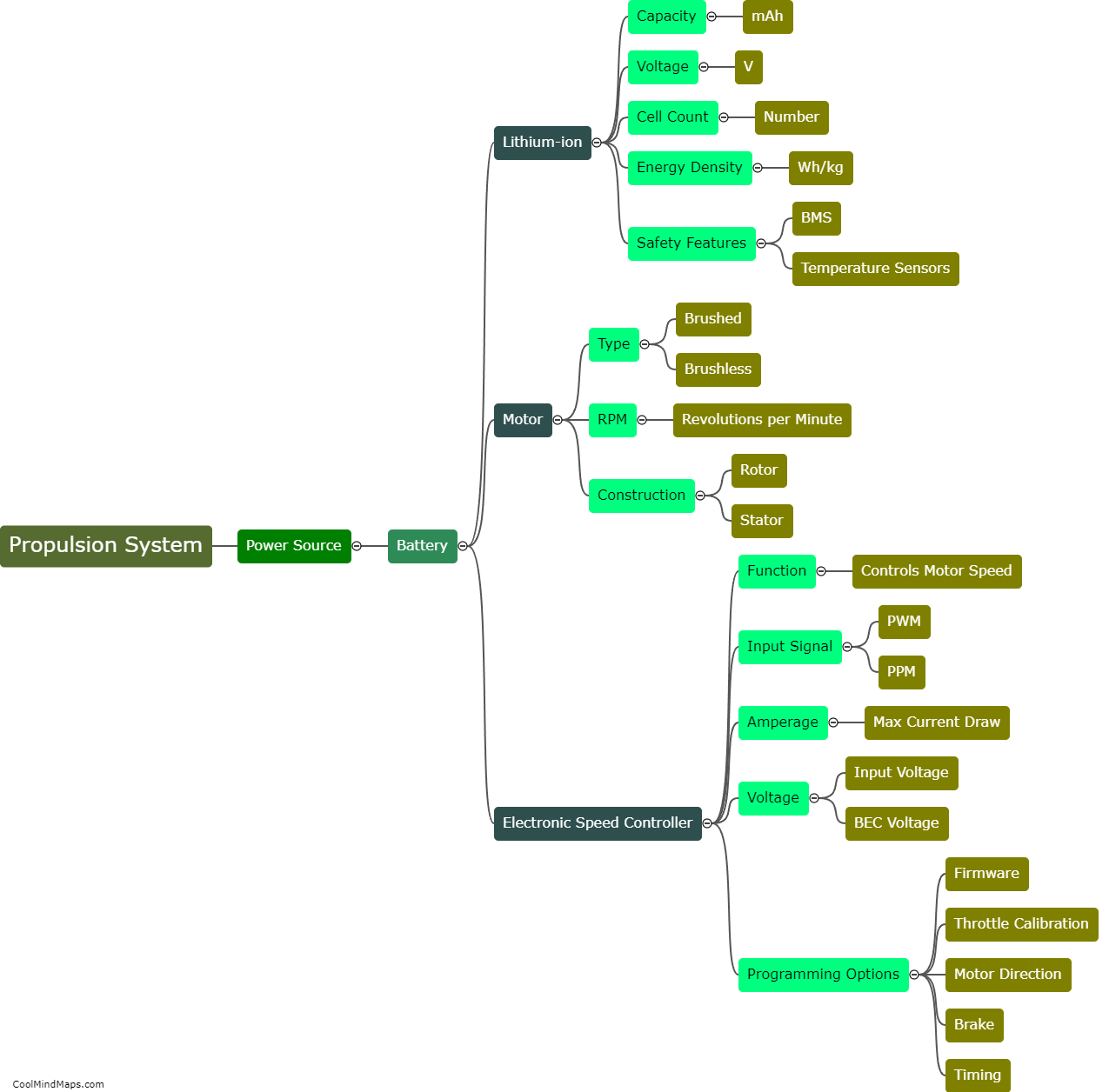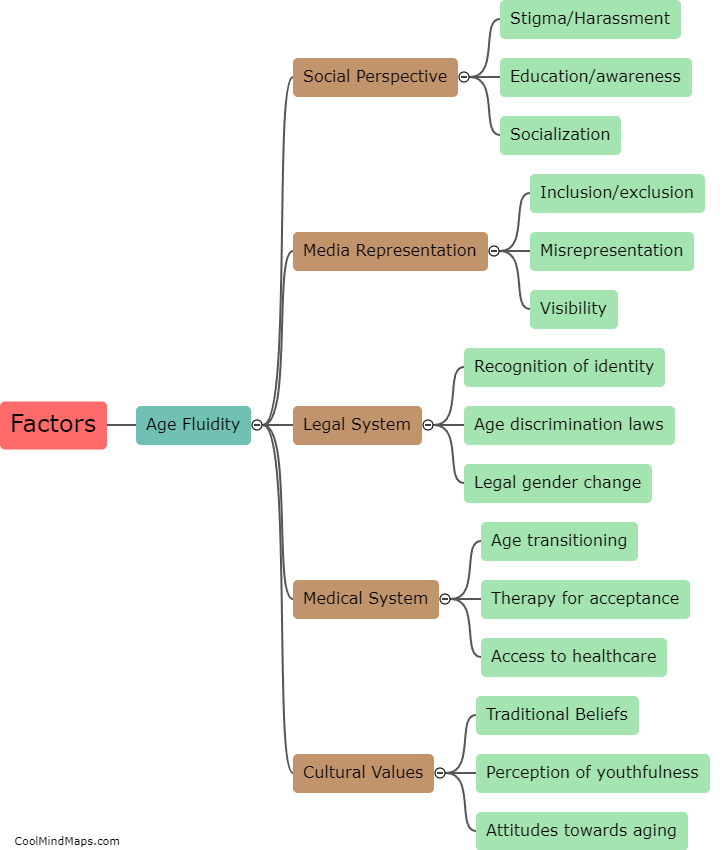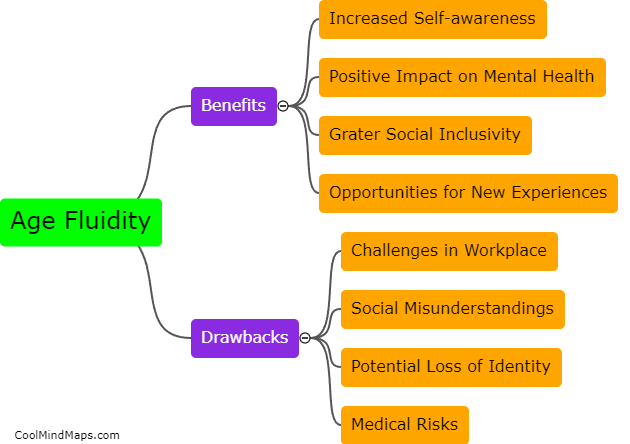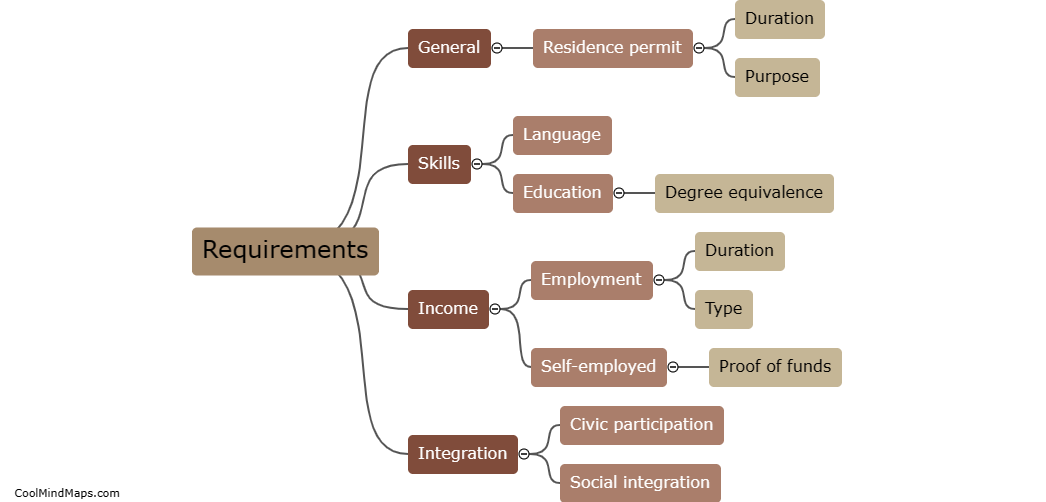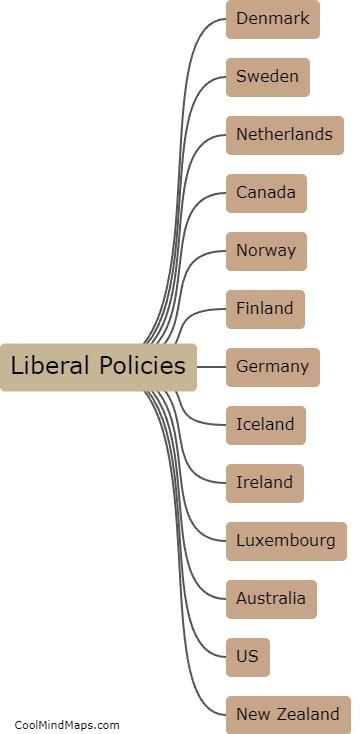How does age-fluidity intersect with societal norms?
Age-fluidity refers to the idea that people can identify with different age groups at different times, rather than adhering to a fixed age identity. This concept challenges societal norms that are based on fixed age categories and expectations. Age-based discrimination, for example, assumes that people of a certain age should behave, dress, and have certain roles and responsibilities. Age-fluidity also intersects with norms around health, retirement, and socializing, as people may feel too young or too old for certain activities based on their age identity. The acceptance and understanding of age-fluidity can lead to a more inclusive and diverse society that accommodates the needs and preferences of individuals, regardless of their age identity.

This mind map was published on 1 June 2023 and has been viewed 115 times.
